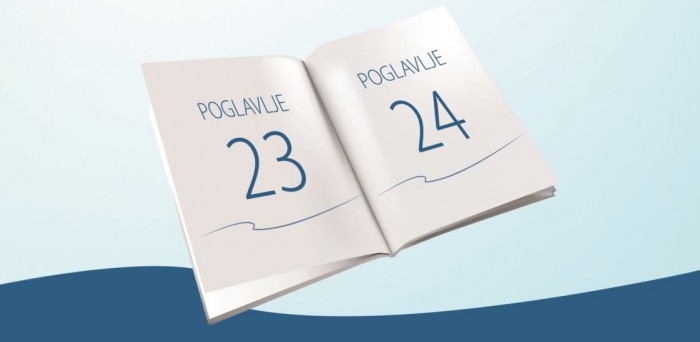This article is an integral part of the Coalition prEUgovor report on progress of Serbia in Chapters 23 and 24 for the period from November 2015 to April 2016.
Serbia made some progress in the process of normalisation of relations with Kosovo. In this report, the BCSP will present findings regarding security aspects of the normalisation dialogue: police cooperation and integration of civil protection (CP) units from North Kosovo in Kosovo institutions.
CP units in four northern Kosovo municipalities still operate outside the legal framework of both Kosovo and Serbia. Under the Agreement on Civil Protection, reached on 26 March 2015 between Belgrade and Priština, civil protection in North Kosovo will be dismantled and its members will be integrated into Kosovo institutions. However, there are currently 751 members of CP units while the Agreement envisages employment only for 483 of them, plus 50 positions on contingency funds, meaning that they will receive salaries, but final workplaces will be determined in the public sector within three years. If the Agreement is fully implemented, 218 of current members of CP units will remain jobless and without income.[1] A number of challenges will need to be addressed in regard to the integration plan, including the inability of Kosovo’s institutions to absorb entire CP units, the unwillingness of CP personnel to become part of Kosovo’s structures and the need to provide alternative sources of income for those who will remain jobless. In the process of dissolving CP units from North Kosovo and reintegrating their personnel, it is crucial to take into account human security concerns in the four northern Kosovo municipalities and ensure that enough resources - human, financial and material - are allocated to the function of protection and rescue in emergency situations.
No progress was made in regard to establishing effective police cooperation with Kosovo. Although the agreement between the Serbian MoI and EULEX (2009) and the Agreement on Integrated Border Management (IBM) (2011)[2] paved a way towards more direct cooperation between Serbian and Kosovar law enforcement agencies, these are still not fully implemented. Currently, the only direct cooperation that takes place between Kosovo and Serbia, since February 2013 and under the IBM Agreement, is at the level of their respective Border Police Departments. However, police cooperation between Serbia and Kosovo takes place indirectly through the UNMIK-hosted National Central Bureau within INTERPOL, and through the EUROPOL via EULEX-mediated exchange of information, and the International Law Enforcement Coordination Unit (ILECU) - an EU initiated project with the general objective to “create an effective international law enforcement cooperation mechanism among the Western Balkans beneficiary countries.”[3]
The Screening Report for Chapter 24 clearly states that Serbia needs to establish direct cooperation with Kosovo as with any other neighbouring country in four policy areas under Chapter 24, police cooperation being one of them. However, the currently available third version of the Draft Action Plan for Chapter 24[4] proposes no concrete measures for establishing an effective police cooperation mechanism between Serbia and Kosovo. The Draft Action Plan only stipulates that its final version will contain a set of measures to address this issue in accordance with the political agreement reached within the context of the Belgrade-Priština dialogue. However, certain improvement was made given that both Heads of Police of Serbia and Kosovo met in Belgrade in March, discussing the flow of migrants from Kosovo to Serbia and further into the EU member states.
Recommendations:
- The process of dissolution of CP units and their integration into Kosovo institutions should be followed by an additional retirement plan and/or re-employment programme.
- It is essential that both the Kosovo and Serbian Governments increase transparency of the process of integration of parallel security structures, by providing accurate and objective information on concrete steps of the implementation process.
- The Serbian Government must stop financing and supporting CP units, pursuant to Article 19 of the Agreement reached on 26 March 2015.
- The Serbian Government should make legal adjustments to allow CP structures to be dismantled and should adopt special government regulations for the retirement of CP staff which are not discriminatory in terms of limiting the freedom of movement, pension inheritance or other criteria for retirement (such as age, years of service etc.).
- The Serbian Government, as well as the North Kosovo municipalities, should cooperate in criminal investigation of those CP personnel who are accused of crimes. The prosecution of criminals is in the interest of both the Serbian and Albanian communities.
- Police cooperation between Serbia and Kosovo needs to be enhanced within the existing framework and taking into account the already reached agreements, regardless of the political dialogue that is taking place in Brussels.
[1] Read the full report on the integration of civil protection units: Bjeloš, M. and Stakić, I. The Future of Civil Protection in North Kosovo. Belgrade Centre for Security Policy, April 2015. The report is available at: www.bezbednost.org/All-publications/5789/The-Future-of-Civil-Protection-in-North-Kosovo.shtml.
[3] Regional Cooperation Council, “Establishment of international law enforcement coordination units in Western Balkans launched in Vienna today” (2008). Available at: http://www.rcc.int/press/59/establishment-of-international-law-enforcement-coordination-units-in-western-balkans-launched-in-vienna-today.
[4] The Third Draft Action Plan for Chapter 24 was published on 30 March 2015, available at: www.mup.gov.rs/cms_cir/oglasi.nsf/Treca_verzija_AP_27_03_2015.pdf.

